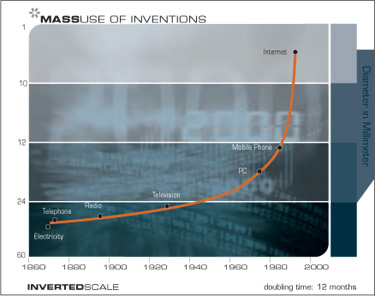The power of population is indefinitely greater than the power in the earth to produce subsistence for man. Population, when unchecked, increases in a geometrical ratio. Subsistence increases only in an arithmetical ratio.Malthus extended the curves on his graphs and agreed with Hobbes’ assessment of mortal existence, that it was “solitary, poor, nasty, brutish, and short.”
Sodden aside: in the pantheon of dead white males whose ideas form the basis of our society---and its evils---one rarely hears aspersions cast upon Malthus (or Marx or Darwin) outside of conservative circles. I suppose it depends on which white male one agrees with.
Malthus’ ideas were given a modern patina by the Club of Rome, which published The Limits to Growth in 1972:
If the present growth trends in world population, industrialization, pollution, food production, and resource depletion continue unchanged, the limits to growth on this planet will be reached sometime within the next one hundred years. The most probable result will be a rather sudden and uncontrollable decline in both population and industrial capacity.The Arab Oil embargo of 1973 seemed to confirm the Club of Rome’s thesis. Watergate, the humiliation of Vietnam, and runaway inflation caused 1970’s America to sink into despondency and malaise. Students were instructed to read Gibbon’s History of the Decline and Fall of the Roman Empire not as history but as harbinger. The Malthusian catastrophe had merely been postponed for a couple of centuries but not avoided.
In the 1980’s the slope of the line changed. Population growth slowed, not because of famine and disease, but due to a rise in living standards. Demographers offered a variety of reasons---large families are an economic burden instead of a blessing, offspring are no longer necessary to provide support for the parents in their old age, children are prohibited from working in factories---but while the reasons remain unclear, the latest trendlines are considerably less dire than Malthus and the Club of Rome had predicted. Perhaps we can permit ourselves to be guardedly optimistic.
Futurist Raymond Kurzweil says that we have been looking at the wrong charts and that our optimism should be unbounded. Accelerating returns in technology point to a mind-blowing (pun intended) future that we can barely grasp. Genetics, nanotechnology, and robotics -- scientific fields that barely existed a century ago—will utterly transform civilization.

Kurzweil's graph illustrates the pace of invention.
The merger of man and machine, the indefinite extension of human life, a virtual reality that will permit us to live as other persons in the fullest sense, these are a few of the developments that we will see by 2050. Eventually, our civilization will leap beyond the bounds of our solar system and transform the universe!Whew. Kurzweil is a smart man, much smarter than this observer, and his insights are probably on target, but what gives me pause is the fact that persuasive-looking graphs, such as the ones produced by Malthus and the Club of Rome, have been wrong before. (If one extrapolated the prices of the Internet stocks that I bought in the 1990’s, I could have retired long ago. Instead, their capital-loss carryforward provides me with a reliable, if modest, tax deduction for years to come.)
Kurzweil advises baby boomers to take care of themselves. These startling advances will be available in a few decades. If we can hang on long enough, we’ll have the choice of extending our lives indefinitely. Advice that it can't hurt to follow, and all the more reason to go to the gym and pass up that second helping. © 2005 Stephen Yuen
No comments:
Post a Comment